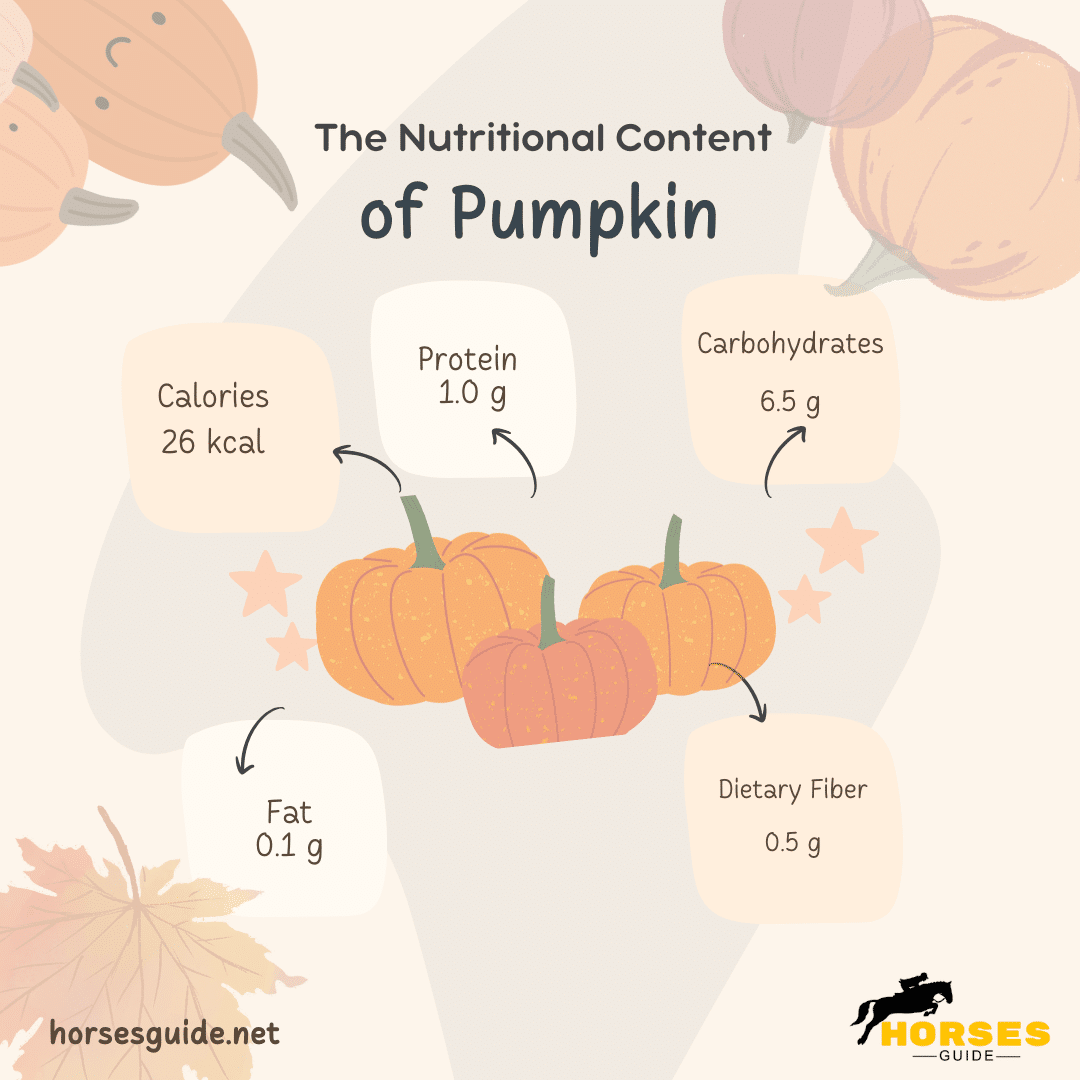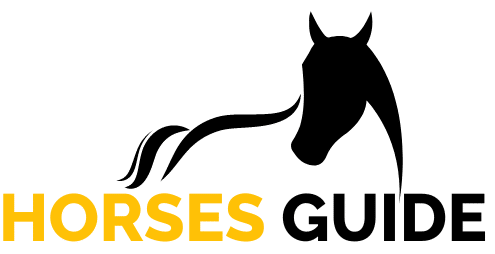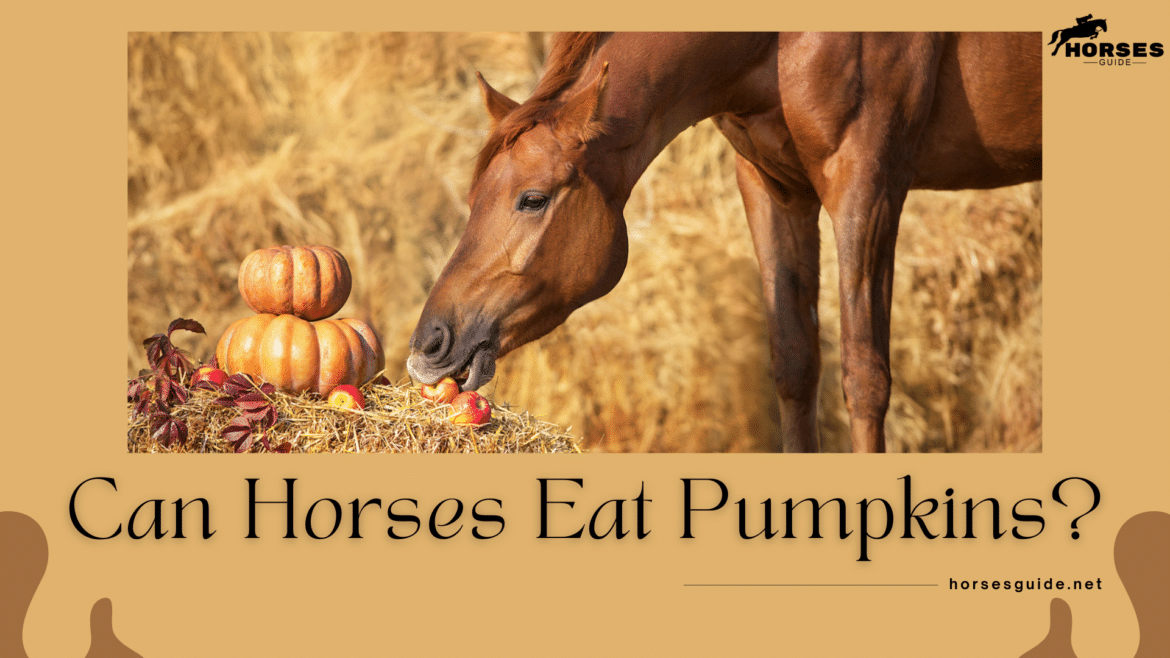Table of Contents
As the crisp air of autumn rolls in and vibrant pumpkins start appearing everywhere, many horse owners find themselves wondering: Can horses eat pumpkins? Whether you’re carving a jack-o’-lantern or preparing a fall feast, you might be tempted to share this seasonal favorite with your equine friend. But is it safe? In this guide, we’ll cover everything you need to know about feeding pumpkin to horses, from the benefits to the nutritional content, ensuring your horse enjoys the autumn season safely and healthily.
Nutritional Content of Pumpkin

Folks, pumpkin is a nutrient-rich food that provides several vitamins and minerals that are beneficial to horses. It is low in calories, making it a healthy treat when given in small amounts. The important nutrients in pumpkin include:
- Vitamin A: Essential for maintaining healthy vision, skin, and immune function.
- Vitamin C: Supports the immune system and helps with tissue repair.
- Vitamin E: Acts as an antioxidant, protecting cells from damage.
- Fiber: Aids in digestion and helps maintain a healthy gut.
- Potassium: Supports muscle function and electrolyte balance.
- Magnesium: Important for muscle and nerve function.
These nutrients make pumpkin a nutritious and appealing option for horses, especially during the fall season when orange pumpkins are plentiful and pumpkin carving is common.
You can find details of the nutritional content of pumpkin in this article.
Health Benefits of Pumpkin for Horses
Feeding your horse pumpkin can offer several health benefits due to its rich nutritional content.
Here are some of the key benefits:
- Supports Digestive Health: Pumpkin is high in fiber, which is crucial for a horse’s digestive system. The fiber content helps regulate bowel movements and can prevent digestive issues such as constipation. So, its time to make your horses eat pumpkins for greater digestive health.
- Boosts Immune Function: The vitamins A, C, and E found in pumpkin are known to enhance immune function. Vitamin A is particularly important for maintaining healthy mucous membranes, which are the body’s first line of defense against infections.
- Provides Hydration: Pumpkin has a high water content, which can help keep your horse hydrated, especially in hot weather or during heavy exercise. This is particularly beneficial if your horse is not drinking enough water.
- Low in Calories: Pumpkin is low in calories, making it an excellent treat for horses that need to maintain or lose weight. Unlike sugary treats, pumpkin provides nutritional value without adding unnecessary calories.
How to Safely Feed Pumpkin to Horses?

While pumpkin is safe for horses to eat, it’s important to follow a few guidelines to ensure your horse enjoys this seasonal treat safely:
- Feed in Moderation: Pumpkins as a treat should be offered as a supplement and not as a replacement for a balanced diet. Too much pumpkin can cause digestive upset due to its high fiber content. A small amount, such as a few slices or a cup of pumpkin puree, is sufficient.
- Avoid Feeding Raw Pumpkin: Although horses can eat raw pumpkin, it’s better to cook or steam it to make it easier for them to digest. Cooking also softens the pumpkin, making it safer for older horses with dental issues.
- Remove Seeds and Skin: Before feeding pumpkins to horses, make sure to remove the pumpkin seeds and skin. The seeds can be a choking hazard, and the skin is tough and difficult for horses to chew and digest. Can horses eat pumpkin seeds? It’s best to avoid them due to the risk they pose.
- Introduce Gradually: If your horse has never eaten pumpkin before, introduce it gradually. Start with a small amount and monitor your horse for any signs of digestive upset or allergic reactions. Can horses eat pumpkins as a regular part of their diet? Yes, but only in moderation.
Conclusion
Summing up what has been discussed so far, pumpkins can be a healthy and enjoyable seasonal treat for horses when fed in moderation. Its rich nutritional content offers several health benefits, including supporting digestive health and boosting the immune system. However, it’s important to safely feed pumpkins by cooking them, removing pumpkin seeds and skin, and introducing them gradually. Besides, by following the article mentioned above, you can add pumpkins as a treat to your horse’s diet during the fall season, especially after pumpkin carving or using leftover jack-o’ lantern squash.



